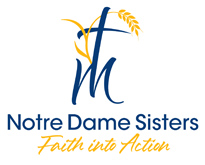What does it mean to respect life? It is much more than one might think!
by Sr. Mary Ann Zimmer, ND
Respect for life is based on belief in the inherent dignity of every life. When we say “inherent,” we are saying that this dignity is “built in.” A person’s human dignity can never be revoked because of their mental health, economic situation, citizenship status, nationality, immigration situation, race, sexual orientation, intellectual ability, criminal record, or other condition one’s society might use to separate the deserving from the undeserving. In the U.S., this understanding of the right to life directly challenges our use of the death penalty that people argue can be imposed on those who “deserve” it.
Respecting life is an attitude that means that one can never be excused from compassion. Messages about the dignity of life that are punitive or that result in harsher lives for others do not uphold human dignity. Human life is not being valued if we fail to ensure a dignified existence: healthcare, good nutrition, adequate and secure housing for people whose lives we say we value.
Respecting the dignity of life requires working for the end of every form of violence that threatens human lives: war, intimate partner violence, lack of responsible gun regulations, unhealthy working conditions, or violent speech that kills the spirit and lays the groundwork for physical violence.
Care for the earth–essential for human living—is an issue of respecting life. As we are learning, we are one global community, and all of us are affected by each other’s decisions. There is no individual isolation in our shared earth; even when we pretend there is we can only maintain that illusion for so long. Any of us who have functioning infrastructure or disposable income can protect ourselves in ways that many other people cannot, but even our time is running out.
You can no doubt make your own observations from your life experience. What enhances human dignity? What threatens it? When have you defended it for yourself or others? Seeing the threats to the inherent dignity of human lives can be discouraging, but they can also be viewed as opportunities. We can touch these threats in large and small ways, and we can join to amplify our efforts. Any effort anyone makes in any part of the world is part of an interdependent web of effects that connects to every other part of our human community. In our troubled world it’s easy to feel hopeless so do nothing. Acting from a place of conviction and hope is itself an embodiment of human dignity and an affirmation of the value of each life.
